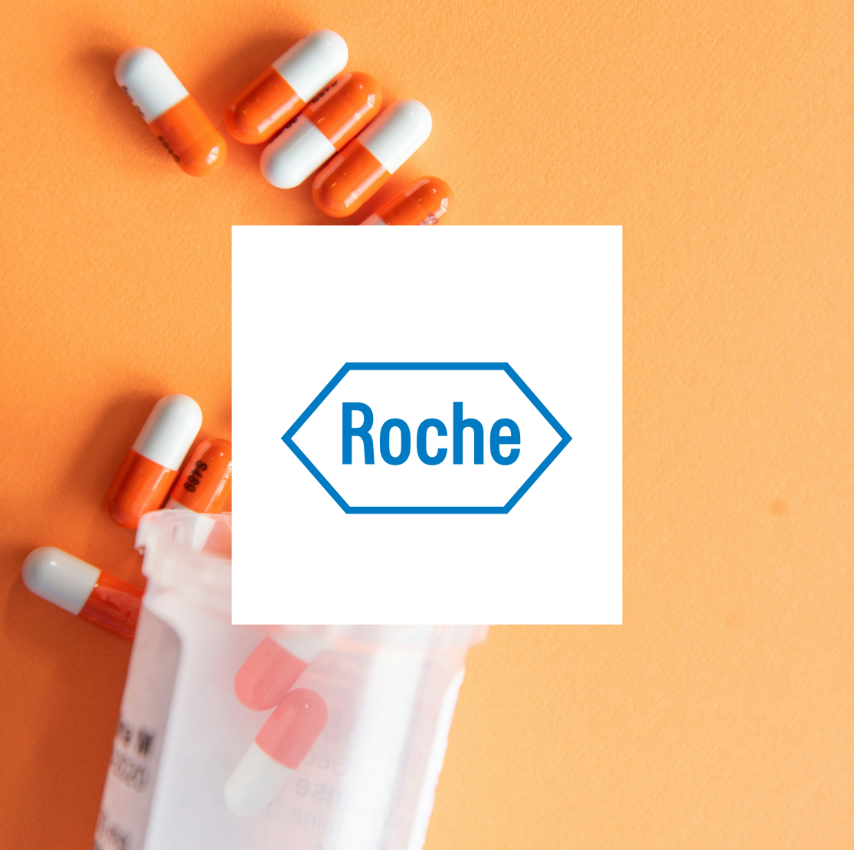FAIR and Fast: Modernizing Clinical Trial Data Management

Industry
Life Sciences
Challenge
Roche faced fragmented, inconsistent, and high-volume clinical trial data that was difficult to reconcile and slowed compliance reporting.
Solution and Results
Roche partnered with Datavid to build a cloud-native platform that unified and automated clinical trial data management. By harmonizing fragmented datasets and embedding FAIR principles, the solution improved data quality, compliance, and scalability. The result is a trusted, reusable, and AI-ready foundation that accelerates clinical development and supports future innovation.
Technology used
AWS Lambda, AWS S3, AWS Glue, Step Functions, RDS, Athena, EKS, Tableau, ServiceNow
Learn how modern clinical trial data management boosts quality, reduces errors, and delivers FAIR, audit-ready datasets for faster drug development.

About Roche
Roche has over 125 years of innovation in biotechnology and healthcare. Recognized globally for its scientific leadership, it consistently ranks among the top three pharma companies for its work in advanced therapies and diagnostics.Setting the Scene
For Roche - a global healthcare leader operating in more than 100 countries with over 100,000 employees - clinical trial data is one of the most valuable business assets. Managing it effectively is essential to keep costs under control, meet strict regulatory deadlines, and accelerate the delivery of new therapies.
Each trial generates millions of records every few hours – Spanning lab results, imaging, data but not limited with possible protocol deviations. Also this data is fragmented across different formats and systems, it creates delays in reporting and increases operational risk. At the business level, that means higher costs, slower decision-making, and reduced ability to reuse trial information across programs.
The Helios project was created to address these challenges by turning fragmented datasets into a single, trusted source of truth by mapping different data sources to common data model while reconciling along with data quality checks.
The Challenges
The initiative focused on reducing manual effort, ensuring compliance with regulators, and aligning data with FAIR principles. With this foundation in place, the organization could speed up clinical development and support future business goals with confidence.
Managing clinical trial data at Roche came with three pressing challenges:
- Data volume and complexity. Every six hours, Roche’s clinical trials generated millions of new records - from lab results and biomarker readings with possible protocol deviations. Traditional systems struggled to handle this scale, creating bottlenecks in both ingestion and downstream reporting.
- Fragmented and inconsistent data. CRF and non-CRF datasets were captured with inconsistent field names, structures, and models across studies. This fragmentation led to high error rates during reconciliation and made it difficult to create a unified view of trial performance.
- Manual and unscalable processes. Many reconciliation and validation workflows were manual, slowing down regulatory reporting. Complex business rules had been written in R, which made them hard to scale, difficult to reuse across studies, and dependent on niche skillsets.
Together, these issues created delays in compliance reporting, increased the risk of costly errors, and held back Roche’s ability to reuse trial data for advanced analytics.
Struggling with fragmented CRF and non-CRF data?
A common semantic model makes your datasets interoperable, reusable, and AI-ready.
The Solution
To overcome these challenges, Roche partnered with Datavid to design and implement a modern, cloud-native data quality and analytics platform. The diagram below illustrates the shift: from siloed, error-prone processes to a streamlined, automated environment built on a common data model.

Through this initiative, data now flows seamlessly from diverse sources into a unified semantic layer, where validation and reconciliation are automated before powering analytics and compliance reporting.
- Common Data Model and FAIR Framework. Study-specific forms were mapped into a common semantic model, harmonizing CRF and non-CRF data. This unified schema made datasets interoperable and aligned with FAIR data principles.
- Automated reconciliation and validation. An event-driven ETL pipeline, powered by AWS Glue to add structure to data and step functions used to orchestrate ontology-based checks, logical business rule validation, and cross-system discrepancy detection in real time. This eliminated most manual reconciliation and dramatically improved accuracy.
- Centralized case management. Instead of scattered issue tracking across multiple tools and teams, all data quality concerns were brought into a single, centralized case management hub. Discrepancies were automatically logged, assigned to the right investigators, and tracked through to resolution. Once corrected at source, the platform re-validated the data in the next load, ensuring continuous accuracy. This central view gave stakeholders clear ownership, full traceability, and faster closure of quality issues across studies.
- Cloud-native scalability. Cloud-native scalability was achieved by leveraging AWS services like EKS, S3, RDS, Athena and Step functions, allowing the platform to process massive datasets continuously and elastically. This architecture ensured high performance, resilience, and the ability to scale up or down without manual intervention.
The Outcomes
While this project achieved measurable efficiency gains, its most important outcome was the creation of a foundation for trustworthy, reusable, and AI-ready data.
By aligning with the FAIR data principles, Datavid and Roche ensured that clinical trial information could support both today’s compliance needs and tomorrow’s innovation.

Working in partnership with Roche, Datavid designed and delivered a solution that produced tangible business results across clinical trial operations:
- 80% reduction in manual errors as reconciliation and validation processes were fully automated.
- 5x faster trial data processing, with event-driven execution replacing legacy batch jobs.
- 40% reduction in operational costs, driven by lower rework, reduced manual labour, and less tool fragmentation.
- On-demand audit readiness, with traceable data quality workflows and audit trails available for regulators such as the FDA and EMA.
By creating clean, linked, and trustworthy datasets, Helios also laid the foundation for Roche’s next-generation clinical development strategy. Trial data is now AI-ready, enabling machine learning pipelines and accelerating time-to-market for investigational products.



